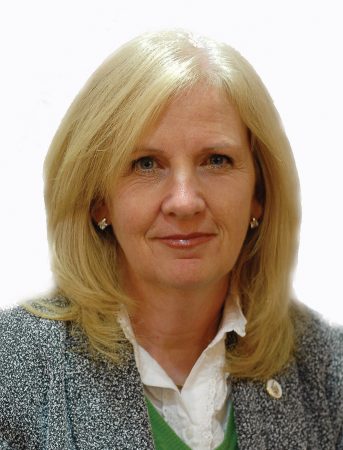The Co-operative Councils Innovations Network (CCIN) brings together 22 local authorities to devise responses to central government austerity – and the list is growing all the time, with Birmingham the latest council to express an interest.
Whatever the demographic differences between member authorities, they share a common aim – to provide a national voice for co-operative-inspired councils and share experience and best practice.
The plan is to build an equal partnership with local people in a bid to lead national debate and policy on the future of public services, local democracy and communities.
The network is open to all UK councils – regardless of political affiliation – who can demonstrate innovation and a willingness to drive forward the co-operative council agenda. It also welcomes affiliate members from professional bodies, policy groups and other associations.
One of the clearest indications of a step change in how decisions are made is public engagement over priorities and choices at budget time. Co-operative councils led the way on this, and it is increasingly common practice for community members to have a say in how their money is spent.
Oldham Council’s ‘Let’s Talk budget’ initiative – which set a £60m challenge to local residents – was one of the first consultations to take place. Since 2009, Oldham has had to cut £141m out of its budget and must lose a further £60m this year. Edinburgh – which needs to save £67m over the next three years – also developed a budget planning tool to give locals a say on spending priorities.
Nationally, councils face funding pressures of £5.8bn by 2020 and social care is set for a £2.6bn funding gap by the end of the decade. The Local Government Association warns that two thirds of local councils will have to find more savings than expected in 2017/18.
Chair Lord Porter said: “No new money from central government is being provided to councils in 2017/18. In fact, more than two thirds of councils will actually be worse off next year than they were expecting.
“Councils need government to reverse New Homes Bonus cuts next year and fund the Adult Social Care Services Grant with new money. This would keep councils from having to make deeper than expected cutbacks and would provide some short-term support to councils providing social care.
“If councils stopped filling in potholes, maintaining parks and open spaces, closed all children’s centres, libraries, museums, leisure centres, turned off every street light and shut all discretionary bus routes, they would not have saved enough to plug this gap by the end of the decade.”
But CCIN is determined to show resilience and do as much as it can to protect front-line services with the help of local communities.
LEARNING TO GOVERN FROM THE BOTTOM UP
The new chair of CCIN is Sharon Taylor, leader of Stevenage Borough Council since 2006, and one of the initiators of the project. She says the idea was born six years ago out of conversation with Steve Reed, then leader of Lambeth Council.

“He and I talked about how we could expand the good things the co-op meant to us in our councils so we put our heads together. We went out to other councillors and that’s how it started.”
It has now grown into a network allowing councils across the country to share their work and learn from each other. “One of the great things about the co-op movement is localism,” says Cllr Taylor. “We look at what everyone else is doing and adapt that to meet local needs. In Stevenage, we are relatively small so we have to scale down and find what’s appropriate but there are always new things to learn.
“The greatest thing for me, in a time when people are very cynical, is that co-operative councils are thinking through new ways of driving forward innovation of services. Even councils who are not part of the network are interested in what we are doing, so it is a good way of promoting our values of co-operation.”
The input of local people is crucial process, she says. “People think very locally where they shop and often have absolutely brilliant ideas about services. We felt there was more we could get from that via neighbourhood planning and new ideas about regeneration by properly engaging local people.”
Shared ideas include those tested in Oldham, such as retraining schemes and giving people access to affordable white goods. “Much of that work is helping us to tackle austerity,” says Cllr Taylor.
“We meet once a quarter and there is work going on in between. We have a newsletter that goes out putting extra pieces in about what different councils are doing. It is a fundamental part of what we are doing, helping us to understand smaller projects day-to-day and the big stuff like co-operative ways of working to tackle adult health and social care.”
LOOKING ABROAD
The network is looking to overseas successes for inspiration, too. “In Italy, which had no real tradition of this, all social care is now delivered via social enterprise,” she says. “It can be done so we are putting our heads to the bigger question.”
She believes the co-operative approach is fundamental to the task of improving and re-designing services: “It’s about making sure we engage with people using services and taking into account what their needs are. It sounds really obvious but it is about building in principles of services which are designed and led by people who live and work in our communities.
“We believe in the dividend principle. By the way that we undertake our work there is a greater dividend to be sought; something where you get more out of it. The kind of capacity building you can achieve in communities is huge.”
Another goal of co-op councils is to make best use of available capacity in the community – whether that’s residents, businesses and the voluntary sector, or even those who were previously disengaged.
“It’s one of our big challenges,” says Cllr Taylor. “There will be groups of people already engaged – but then there are people who are difficult to speak to, like young parents working during the day who do not go out in the evenings.
“In Stevenage we were thinking how to devise ways of engaging them – and we had a teddy bears’ picnic in a local park where 700 people turned up. We were able to speak to people we would never be able to contact with in the usual way and talk about their hopes and expectations. It was a hugely successful way of engaging the community of young people but it is something we have to continue to work on and think about.”
Ideas like this could be the building blocks of something grander, she hopes. “My aim is to start a whole new era of community engagement, get people interested and active – but we won’t do that without taking their input into account.”
She adds: “The co-operative approach to strengthening democratic accountability is about the way that we harness personal commitment and ideas to make sure people and places are able to change and feel engaged. If we can reclaim those traditions of civic empowerment and the community tradition, and if people feel they can make a difference, then some of the cynicism gets put to one side.”
She hopes this will encourage people to stand for the council or become community leaders – because the network is about encouraging equality of opportunity and social justice, and not just weathering the tough times.
“We have seen in the last seven or eight years that people do not feel engaged,” says Cllr Taylor. “There has been a sliding back of social justice so it’s our job to make sure there are opportunities that everyone has.
“When it comes to housing and leisure we can influence decision-making and the more people you can engage the better things will be for more people. The more everyone has a voice the more you will have social justice.”
From this, she says, comes “sustainable regeneration and prosperity. If you look at some of the work in regeneration, we want it to be sustainable in economic terms and for there to be a long-lasting response to work in the community.”

LOOKING AHEAD
Sharon Taylor believes co-operative councils are leading the way: “We are creating lifelong opportunities to get back in the local economy and there is groundbreaking work to ensure those opportunities remain, like ensuring a Living Wage and continuous training to make economic opportunities sustainable.
“Co-op councils are leading on local economy supported by regeneration towards a thriving local economy. There is no point in lovely shiny buildings without jobs and a vibrant economy. We have to work in a holistic way so the whole of a regeneration project works and is sustainable in the longer term.”
And it is not just other co-op councils which help – the Co-operative Group also contributes. “We can call on them for help so we talk to them a lot. Local co-op branches have also taken a great interest.”
Nor is the new model limited to the Co-operative Party. “Labour councillors not signed up to the Co-operative Party also operate on co-op principles,” says Cllr Taylor. “We have an absolute commitment to working and engaging with everybody but there is a distinct difference to co-op principles which delivers and informs what we do.
“We find it really useful to have this set of values we can check back with. We would not insist every councillor was Labour/co-op – we take each application on its merits and reassure ourselves that commitment is there.”
But this is only the beginning. “It’s still a challenge,” she says, “and we have to work on that as hard as we can. The setting up of co-operative councils was part of our response to that but we are still in a country where we have food banks and there is a lot of work to do.”
Case study: Building a future in Cardiff

Cardiff became a co-op council in 2014 and now has a corporate plan “connected to the citizens and communities of Cardiff”.
Cllr Peter Bradbury, a member of CCIN’s executive oversight committee and Cardiff’s cabinet member for community development, co-operatives and social enterprise, says the council wanted a bottom-up solution to austerity, and gives the example of housing services.
“We set up a co-op housing scheme where local tenants are in charge of procuring repairs, collecting rents, doing things a different way,” he says.
“There has been a lot of work around social services, making the most of the assets we have. On issues like heritage, we work with local universities, communities and public sector partners.”
The council consults the public before setting its budget in February. “We are clear about our priorities for taking the city forward and tackling inequality,” says Cllr Bradbury. “Supporting vulnerable people, creating more and better paid jobs and working together to transform services.

“We are investing £168m to modernise our schools, and our focus on improving performance has helped GCSE results improve by 10% since 2012.
“On social care, we have backed our commitment to supporting vulnerable people, spending around £91m on adult social services and £137m on social services. We provide over 13,000 social homes for people in most need, and recently signed a contract to deliver another 1,400 affordable homes in the city.
“We have worked with our partners to make 2,320 offers of accommodation to help those affected by the UK government’s welfare reforms.”
Regeneration work in Central Square has created more and better-paid jobs, he adds, alongside a new bus interchange, a local development plan and the proposed £1.2bn Cardiff Capital Region City Deal. And efficiencies are being made, while services are transformed, he says.
“Our community hubs are a great example, where a number of different partners offer a range of services all under one roof. This improves access to services and helps us save money.
“In the face of increased demand for our services and rapidly reducing budgets we are delivering for the city. We are open and honest about difficult choices but we champion fairness to deliver best outcomes based on co-op values.”

